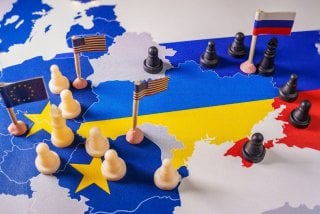A European Perspective on the New World Disorder
Shaping a stable world order requires political leadership. And leadership requires a strong and clear sense of realpolitik.
7. Efforts to strengthen and expand rules-based regulatory frameworks should be continued vigorously at both global and regional levels. Cooperation among the P5 states (the United States, China, Russia, France, and Great Britain), which are privileged by the UN system, must also be promoted in the interest of containing their rivalry. These five nuclear-weapon states, recognized under the Non-Proliferation Treaty (NPT), have common non-proliferation interests. In the short term, for example, it will be important to preserve the NPT regime despite the lack of progress in nuclear disarmament and to revive the nuclear agreement with Iran, from which the United States unilaterally withdrew in 2018.
8. In the interest of peace and stability, the major powers’ so-called “red lines” (be they declared or not) require special attention. In view of the danger of escalation, central red lines must, as was done in the last Cold War, be respected. To this end, NATO should refrain from pushing the enlargement process and accepting Ukraine and Caucasus states as members. And the EU should forgo unnecessarily provocative symbolic political gestures and refrain from prominently focusing on the prospect of Ukraine becoming a member state.
9. Globalization should not be fundamentally called into question; anyhow, this is hardly possible in view of the level of economic integration that has been reached. For countries like Germany that are dependent on functioning world trade, this would also result in as yet unforeseeable but major losses in prosperity. In addition, despite all the doomsayers, it remains true that trade and economic cooperation have an effect that promotes stability and mutual understanding. Irrespective of this, it is important to reduce one-sided dependencies in the interest of avoiding the possibility of being blackmailed (however, it is questionable whether this will succeed in all cases).
10. In view of the new great power rivalry, competition for the approval and support of important countries in the Third World will also increase. The West needs to better involve these states, intensify relations with them, and to provide economic incentives and investments.
The above list may look like an enumeration of pious wishes. In a way it is. The political agenda points listed need to be transformed into concrete policies. Their implementation may seem unrealistic in the short term; nevertheless, the list provides a guide for the foreign policy challenges to be met.
We should all become aware of the challenges posed by today’s radical changes to the world order. Certainly, the risks inherent in them are not entirely manageable. Nevertheless, they require decisive action. It is often necessary to break new ground; but the lessons of the past Cold War should not be ignored either. Bold and pithy words alone are just as insufficient as emphasizing the need for joint action. Shaping a stable world order requires political leadership. And leadership requires a strong and clear sense of realpolitik.
Rüdiger Lüdeking is a former German diplomat. He has served, inter alia, as Ambassador and Deputy Commissioner of the Federal Government for Disarmament and Arms Control, Permanent Representative to the United Nations and to the other International Organizations in Vienna and as
Permanent Representative to the Organization for Security and Cooperation in Europe. Before retiring in 2018 he served as Ambassador to the Kingdom of Belgium.
Image: Shutterstock.

